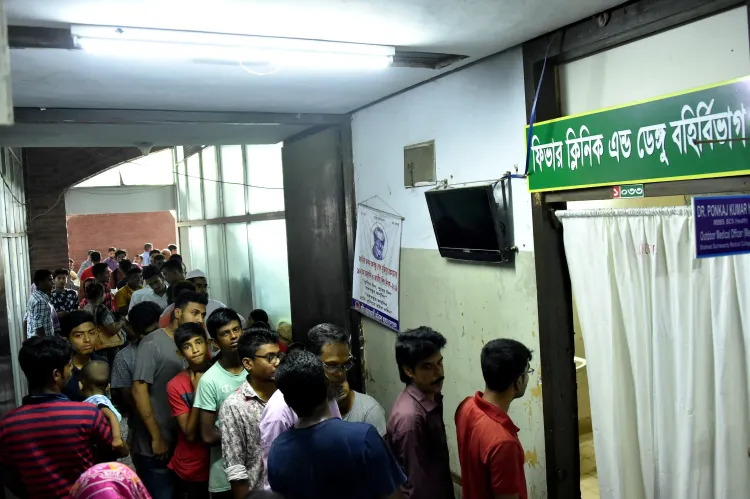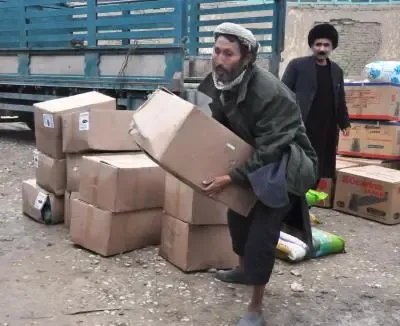Have Two More Lives Been Lost to Dengue in Bangladesh as 2025 Death Toll Hits 200?

Synopsis
Key Takeaways
- 2025 dengue deaths in Bangladesh reached 200.
- 490 new cases reported recently.
- Hospitals instructed to create dedicated wards.
- Over 101,000 cases reported in 2024.
- 2023 was the deadliest year with 1,705 deaths.
Dhaka, Oct 1 (NationPress) Two additional individuals have succumbed to dengue within the last 24 hours, as reported by local media, bringing the total fatalities from this mosquito-borne illness in Bangladesh for the year 2025 to 200.
During this timeframe, 490 new patients were admitted to hospitals with viral fever, increasing the cumulative cases to 47,832 in 2025, according to the Directorate General of Health Services (DGHS), as reported by United News of Bangladesh (UNB).
The DGHS confirmed that the recent deaths occurred within the Dhaka South City Corporation (DSCC). In September alone, 76 people lost their lives to dengue, accompanied by 866 new cases during the same period.
New cases have been reported across various regions including Barishal Division (138), Dhaka Division (100), Dhaka North City Corporation (78), Dhaka South City Corporation (64), Chattogram Division (60), Mymensingh Division (28), and Rangpur Division (22).
Currently, there are 2,359 patients receiving treatment in hospitals across Bangladesh. In 2024, 575 individuals died from dengue, and the DGHS reported 101,214 dengue cases and 100,040 recoveries during the same timeframe.
The year 2023 was the deadliest on record, with 1,705 fatalities attributed to dengue.
On September 16, the DGHS issued new directives for public hospitals to enhance the treatment of dengue patients. These guidelines require all hospitals in Bangladesh to create dedicated wards for dengue treatment and to assemble specialized medical teams.
The DGHS believes this initiative will improve patient care, reduce risks, and enhance the quality of hospital services, as reported by local media. The directive was issued by DGHS Director (Hospitals and Clinics) Abu Hossain Md Mainul Ahsan.
Hospitals are mandated to ensure specific arrangements for dengue patients, including facilities for NS-1 tests, emergency care, and adequate medication supplies, according to the Dhaka Tribune.
Dengue patients in hospitals should be housed in designated wards or rooms, with ICU support prioritized when necessary. Special responsibilities have been assigned to doctors and nurses.
The directive also calls for the establishment of a board consisting of specialists in medicine and pediatrics to oversee the treatment of dengue and chikungunya patients. Under this board's supervision, trained doctors, medical officers, and residents will provide care.
Additionally, the same board and physicians are tasked with treating suspected patients arriving at outpatient departments. Hospital directors are instructed to communicate with city corporations or municipalities to initiate mosquito eradication and cleanliness campaigns around hospital areas. Furthermore, a dengue coordination meeting must be convened at hospitals every Saturday, chaired by the director, superintendent, and civil surgeon.









